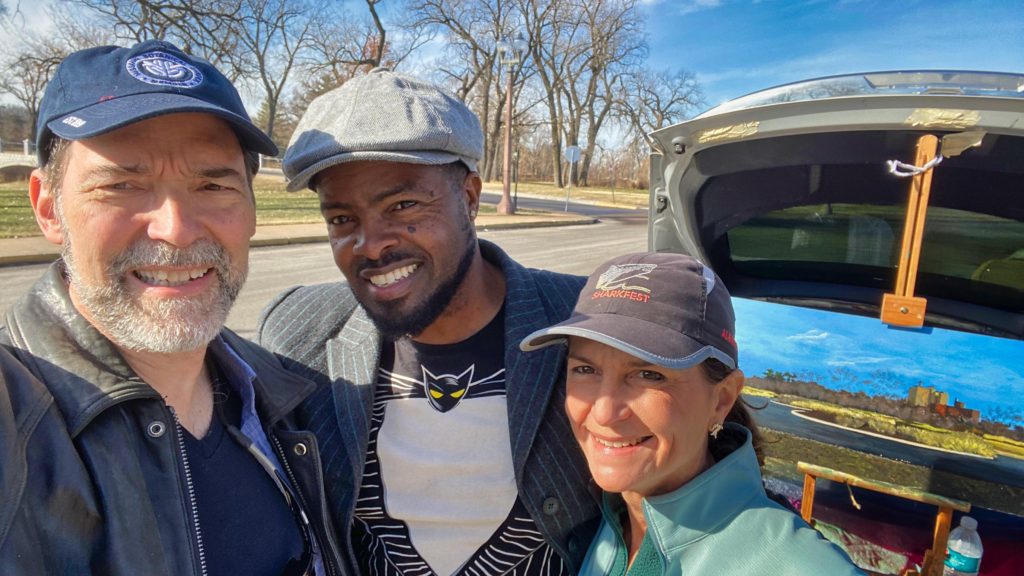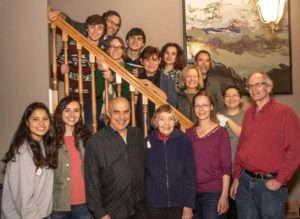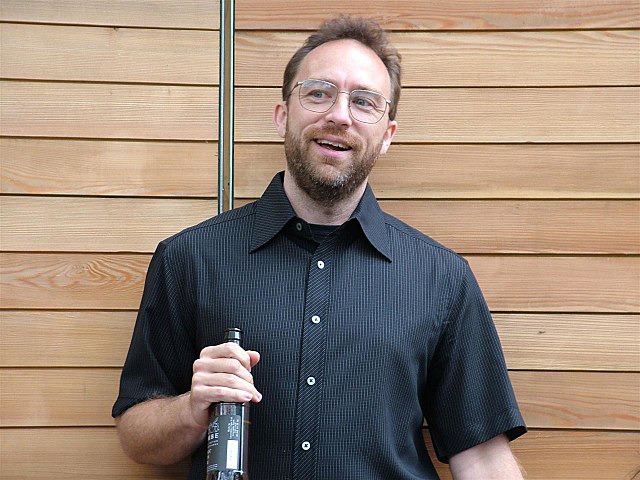Spontaneous Conversation with Curbside Artist
Martha Ferdinand has been one of my favorite people ever since I began working with her at Arch City Defenders. More recently, we have made a habit of walking briskly through Forest Park while catching up with each other. And, of course, we often contemplate the human condition. We haven’t yet figured that out . . .
Today we took a little side-trip from our planned walk. I spotted a man painting a park scene across the street and suggested to Martha that perhaps it would be fun to go check out his work. Martha nodded, and that’s how we met “Frank James, Curbside Artist.” Frank explained that he has made a living of painting scenes of Tower Grove Park and, more recently, Forest Park. He pulled out other examples of his work from his car: several impressive detailed 30” wide panoramas of park scenes in acrylic paint. Frank offered far more than art today, however. He looked us over and offered an off-the-cuff character analysis of Martha with a big smile and lots of laughs, especially when she agreed that he was somewhat accurate. All of this while smooth music played quietly on his car stereo, but not an entire song. He only liked the first part of that song, so he cut off part where the “irritating” singer began to sing. He loops the pre-vocals beginning of the tune over and over. He explained that this is a significant part of his creative process.

We chatted for awhile about many things, not just painting, but also about his outlook on life, our thoughts on race relations and discussions about music we all enjoy (including Wes Montgomery and George Benson's Breezin’). Good vibes all around.
My friend John Simon often says, “It’s all about relationships.” I agree that this is an excellent default position for understanding almost any life situation. Certainly, my memory of Forest Park on this day will be dominated by the spirited conversations with both Martha and with that ebullient stranger-no-more, “Frank James, Curbside Artist.”
I have a theory too. It seems to me that unplanned spontaneous conversations are often the best, the most memorable. Those who know me well know that it’s hard to hold me back when I get the sense that a quirky




